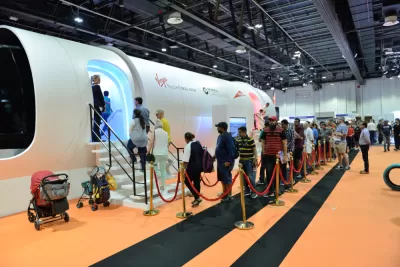New mobility modes and services have tantalizing potential, but they can also impose significant costs and risks. We need objective and comprehensive analysis to determine how—and how not—to incorporate these new technologies.

When shopping for a car, you’ll find numerous websites and guides that provide detailed information on their costs and performance, plus ratings and reviews. However, there is much less data about emerging transportation technologies and services that are poised to affect our lives and communities, like e-bikes, ride-hailing, and even futuristic but not far off technologies like pneumatic tube trains, autonomous cars and drones. Information about those technologies is often incomplete, speculative and biased.
These new mobility modes and services, or “new mobilities,” have tantalizing potential. They may allow people to scoot, ride and even fly like never before. However, they can also impose significant costs and risks. We need objective and comprehensive analysis to determine whether they should they be mandated, encouraged, regulated, restricted or forbidden.
A little skepticism is appropriate. Advocates offer images of happy passengers traveling in sleek, fast vehicles, but the reality may be very different. New travel modes and services are often less comfortable and more costly than proponents claim. Ridership, revenues and benefits may be much smaller than optimists predict, and they may make many people worse off overall. For example, autonomous taxi passengers may find garbage and odors left by previous occupants; flying cars can create significant noise, safety and privacy problems; and you may want to shoot down the drones delivering pizza and beer to your neighbor’s late-night party.
This is a timely issue. In the future, households and communities will face countless decisions concerning how to incorporate emerging mobility technologies and services. It is important to make those decisions based on comprehensive analysis. We can’t evaluate each new mobility in the confines of this column, but in a new book, New Mobilities: Smart Planning for Emerging Transportation Technologies, I offer a framework for undertaking a thoughtful analysis.
FULL STORY: Pneumatic Tube Trains and AVs to the Rescue? Smarter Planning for New Mobility

Planetizen Federal Action Tracker
A weekly monitor of how Trump’s orders and actions are impacting planners and planning in America.

Maui's Vacation Rental Debate Turns Ugly
Verbal attacks, misinformation campaigns and fistfights plague a high-stakes debate to convert thousands of vacation rentals into long-term housing.

Restaurant Patios Were a Pandemic Win — Why Were They so Hard to Keep?
Social distancing requirements and changes in travel patterns prompted cities to pilot new uses for street and sidewalk space. Then it got complicated.

In California Battle of Housing vs. Environment, Housing Just Won
A new state law significantly limits the power of CEQA, an environmental review law that served as a powerful tool for blocking new development.

Boulder Eliminates Parking Minimums Citywide
Officials estimate the cost of building a single underground parking space at up to $100,000.

Orange County, Florida Adopts Largest US “Sprawl Repair” Code
The ‘Orange Code’ seeks to rectify decades of sprawl-inducing, car-oriented development.
Urban Design for Planners 1: Software Tools
This six-course series explores essential urban design concepts using open source software and equips planners with the tools they need to participate fully in the urban design process.
Planning for Universal Design
Learn the tools for implementing Universal Design in planning regulations.
Heyer Gruel & Associates PA
JM Goldson LLC
Custer County Colorado
City of Camden Redevelopment Agency
City of Astoria
Transportation Research & Education Center (TREC) at Portland State University
Jefferson Parish Government
Camden Redevelopment Agency
City of Claremont


























